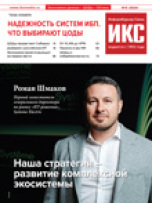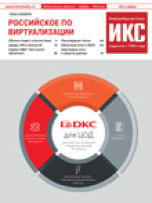| Рубрикатор |  |
 |
| Все новости |  |
World News |  |
 |
MWC Review: Absence of Androids
| 24 февраля 2009 |
So just where were all the Androids at this year's Mobile World Congress? And no, we're not talking about attendance at the event, which was certainly down on previous years, despite the GSMA's best efforts to persuade us otherwise.
There were certainly fewer news hounds like ourselves, trawling the halls in robot-like fashion desperately seeking out a scoop, and fewer attendees in general.
Actually, we're not convinced that a few androids weren't drafted in towards the end of the week to boost the numbers a bit... but then again maybe we've been watching too much late-night TV and need to get out more, but I digress...
We are of course referring to the fact that all the hype around Google's open source Android operating system - We were all expecting a raft of Android announcements - came to very little.
In the end there was one - very low-key - operator announcement, and precious little more from the vendors.
On Tuesday Vodafone and HTC unveiled the Magic, an Android-powered device that will be available in the U.K., Germany, France, Spain and Italy this spring, with additional markets to follow.
Meanwhile, China's Huawei revealed its first smartphone, a device based on the Google platform that is due to be commercially available in Q3, but emphasised that it is not concentrating its smartphone ambitions on Android alone.
There will be two or three types of smartphone launched this year, “not only Android,” said Meddy Lu, director, brand management department, at Huawei's terminal division, at a press roundtable on Tuesday. Lu also said Huawei would announce a European operator partner for the device at the show, although as far as we are aware, that announcement failed to materialise.
"Many, in the industry, including large handset makers, view Android as a very cheap and easy way to enter the smartphones but I suspect that they are finding that the reality is very different," said Richard Windsor, Industry Specialist at Nomura Securities, in a research note.
Interestingly, Windsor also noted the "deafening silence," as he put it, permeating from MWC 2009
"There is very little news of relevance and frankly most of the companies that we have met so far have talked of cost-cutting and survival," he said. More on that later.
"The old saying that there is no such thing as free software is proving to be true," Windsor speculated, echoing comments made by Microsoft, which is desperate to protect its position against open-source software.
"Nothing's free," said Aaron Woodman, director of consumer experiences at Microsoft's mobile communications business, talking to Total Telecom about Android. "The question is where the costs get incurred," he said.
Microsoft made a number of announcements at Mobile World Congress, including the rebranding of its mobile business and the arrival of Windows Mobile 6.5.
But most interestingly, the software giant was one of a number of players to make an applications store announcement – it introduced Windows Marketplace for Mobile - an area which, as predicted by Total Telecom, was a key focus of MWC 2009.
All about apps
Nokia joined the app store club on Monday, unveiling its Ovi Store, which is set to launch in May. The vendor's N97 device, due on the market in June, will be the first to have the app store pre-loaded.
Nokia also introduced publish.ovi.com, a site for developers to upload applications. Content developers will be able to charge for applications if they wish, with a revenue-share model set at 70%, in their favour.
The Symbian Foundation also focused on apps, revealing that one of its core plans going forward will be to enable operators to integrate their own app stores into its platform.
But while Symbian looks forward to what it described as "multiple store fronts," Ralph de la Vega, CEO of AT&T Mobility, warned conference delegates of too much fragmentation in the market, noting there is at present a proliferation of platforms, each of which represents a solitary island with its own collection of applications.
Meanwhile, Orange announced new features for its Application Shop, in a bid to attract customers that do not use the mobile Internet.
The company told us that it will recommend simple widgets to its customers – 90% of which do not surf the mobile Web, it said - through an Application Shop embedded on the mobile device.
And T-Mobile unveiled a widgets platform of its own. The apps platform, which will be available on Web 'n' Walk devices, will come to market this quarter, the operator said.
But while apps captured the headlines, for many the networks still took centre stage.
And noone made more noise about the power of the network than Telstra CEO Sol Trujillo last week.
In an interview with Total Telecom, he spoke out against network-sharing, noting that it does not allow operators to differentiate. Incidentally, Telstra was one of the few operators at the show with a concrete news announcement: the Australian incumbent revealed that it will make 21-Mbps mobile broadband available later this month.
Later, in a conference keynote, Trujillo almost came to blows with over-the-top service specialist Skype over data pricing. Specifically, Skype chief executive Josh Silverman, and to a certain extent Google VP of engineering Vic Gundotra, called for flat-rate mobile data tariffs to drive the market, but Trujillo would not be swayed for his counter-position, insisting that volume-based pricing is the way to go.
He also made it clear that he is not interested in any partnership with Skype.
He was not the only one to hit out against the VoIP telephony firm.
T-Mobile International CEO Hamid Akhavan described Skype as not relevant, when questioned as to why the company had been left off a list of partners.
High-speed network rollout is also at the top of the list for Turkcell, which detailed the various aspects of its 3G network rollout plans.
Cenk Serdar, chief business development officer at Turkcell, told us that the company's 3G service will go live in June this year; the licences will be formally signed over to Turkcell, Vodafone and Avea in a matter of weeks, he said.
Meanwhile, Turkcell CEO Sureyya Ciliv added that in preparation for 3G the operator plans to double its capital expenditure to more than $1 billion this year compared with last, including the €358 million it agreed to pay for its 3G licence.
China's role in economic recovery
All eyes were on the Chinese operators at this Mobile World Congress, with both China Unicom and China Mobile detailing their 3G network rollouts.
Unicom chairman Chang Xiaobing told conference attendees that his company plans to launch 3G services in May and cover 70% of the population by the end of the year. The company will deploy 80,000 base stations this year.
Meanwhile China Mobile, which recently said it will deploy 60,000 TD-SCDMA base stations this year, predicted that total 3G capex in China will reach $45 billion and create at least 30,000 new jobs.
Little wonder then that the industry is looking to China to lead us out of recession.
Speaking in Barcelona on Monday, Jeffrey Sachs, economist, director of the Earth Institute at Colombia University, and advisor to UN secretary general Ban Ki-moon, predicted that China will be the first to recover.
Not everyone was so sure though. Independent consultant and former MobileOne CEO Neil Montefiore created a stir by suggesting that the investment in 3G rollout in China could well fall below expectations.
Montefiore also warned that telcos could face greater regulatory scrutiny as a result of the current downturn, and predicted that the recession could trigger the end of handset subsidies.
However, the prevailing trend at the show saw speaker after speaker refer to the potential of the mobile industry to not only withstand the recession, but lead other industries out of it.
Qualcomm's Andrew Gilbert, for example, was just one of many to make comments along those lines.
ITU Secretary-General Dr Hamadoun Toure told Total Telecom that the telecoms space will be less hard hit than others, and insisted that confidence is key to surviving the downturn.
And, alongside focusing on the health issues related to mobile network build-out, Nathalie Kosciusko-Morizet, French secretary of state for strategic studies and the development of the digital economy, also touched on the role of the mobile industry in difficult economic times in an interview.
"Telecommunication is the engine for the [economic] recovery… [and] mobile data is a great element [of that]," said Vodafone chief executive Vittorio Colao in his keynote address on Tuesday, an address in which he also pleaded with attendees not to refer to his company as a "carrier".
And the vendors were keen to outline their own strategies for beating the credit crunch.
Adolfo Hernandez, president of Alcatel-Lucent's EMEA business, told us that the Franco-U.S. vendor will be largely playing it safe, focusing on areas that are showing healthy signs of growth, rather than betting on new markets.
Meanwhile, Ericsson CEO Carl-Henric Svanberg said he saw increased demand for vendor financing as a result of the downturn, but insisted that the Swedish vendor will not be a party to it. Instead, credit from government sources will play a bigger part, he said.
Richard Lowe, president of Nortel's Carrier Networks business, told us on Tuesday that the vendor is still seeing orders coming through from its carrier customers, despite the economic situation and the company's recent bankruptcy protection filing.
He admitted that some are cutting back, but insisted that the credit squeeze is not affecting the move to 4G.
And finally, our favourite announcement from the event.
The GSMA is spearheading an industry initiative to harmonise mobile phone chargers, the industry body's CEO Rob Conway announced on Tuesday, in a bid to bring "the scourge of incompatible chargers" to an end.
I have to admit that being knee-deep in incompatible mobile phone chargers doesn't keep me awake at night, but my living room would certainly look a whole lot better without the existing phone charger spaghetti that I'm trying (unsuccessfully) to pretend is a feature.
And I'm definitely all for anything that might make my suitcase less heavy for the trip to next year's Mobile World Congress. The stairs in those Barcelona apartment blocks were a killer
By Mary Lennighan
Источник: Total Telecom
Читайте также:
Ключевые задачи Минцифры Казахстана обсудили на заседании Общественного совета
Сингапур готовится к отключению связи 3G
МТС начинает отключать старые сети 3G
билайн завершил масштабную модернизацию сети в Московской области
В Узбекистане развернут первую в Центральной Азии сеть 5G Standalone

















Оставить свой комментарий:
Комментарии по материалу
Данный материал еще не комментировался.